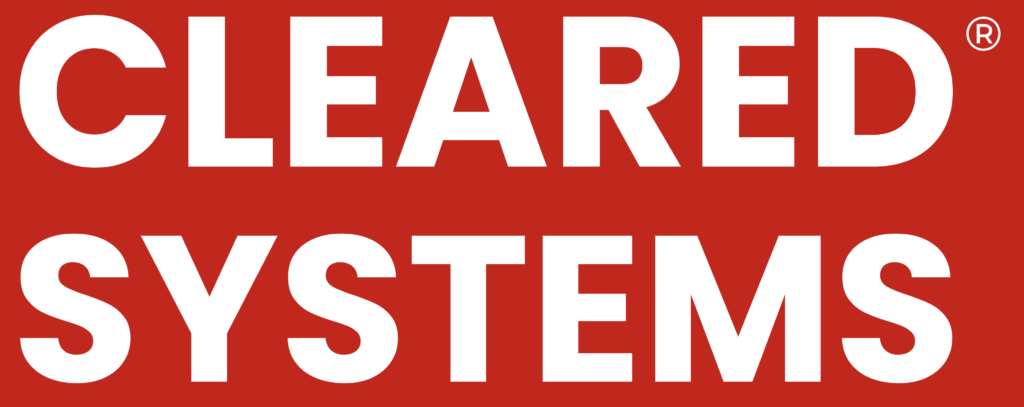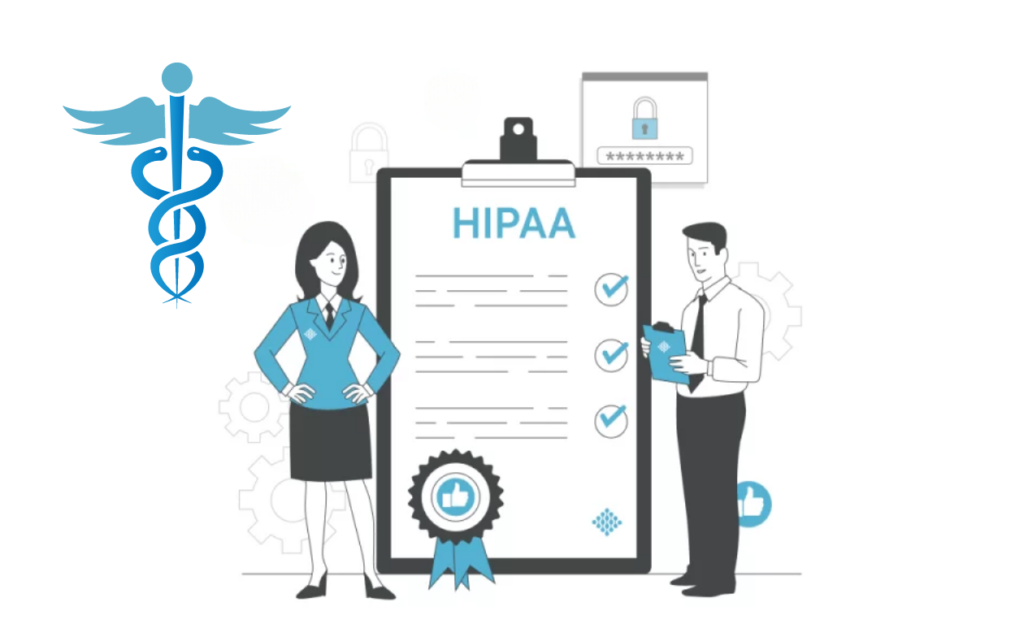Healthcare data or PHI must be handled in a manner compliant with the Health Insurance Portability and Accountability Act (HIPAA) of 1996. Are you struggling to secure this data and ensure your entity complies with this act? You aren’t alone. Many HIPAA covered entities and Business Associates (BAs) find it challenging to protect the patient information form the increasing cyber threats. This is where cybersecurity companies and Managed IT Service Providers (MSPs) can help. This article elaborates on how MSPs can help healthcare providers achieve HIPAA compliance.
Conducting Comprehensive Security Awareness Training
Humans are the weakest link in any organization’s cybersecurity efforts. According to a report by ISACA, 88% of data breach incidents are caused by employee mistakes. Unfortunately, even when these mistakes arise, most employees are often unwilling to admit their mistakes for fear of reprisals from their organizations. This is why healthcare providers should have a security awareness training program for their staff. Such programs should cover HIPAA regulations, secure handling of patient information, and cybersecurity best practices. MSPs like Cleared Systems can not only train HIPAA covered entities but also help them prepare comprehensive training programs, ensuring that all their employees follow best practices for data handling and protection, and properly understand HIPAA requirements.
Developing Cybersecurity Policies
Even the best technologies will not ensure HIPAA compliance if they are void of effective cybersecurity policies. Therefore, covered entities must have robust policies and procedures to ensure PHI’s security and privacy, consistent monitoring, employee training, and swift incident response to mitigate risks and maintain compliance. MSPs like Cleared Systems are experts in developing clear, actionable policies and procedures beyond HIPAA. Implemented properly, these policies and procedures can be instrumental in a covered entity’s overall HIPAA compliance.
Risk Assessment and Management
HIPAA risk assessments are conducted to identify potential threats to the security and privacy of PHI, the likelihood of these threats occurring, and the potential impact of each threat. This helps determine if the existing policies, procedures, and security mechanisms can adequately reduce the risk to an appropriate and reasonable level. Under HIPAA, risk assessments can be in furtherance of 45 CFR § 164.308 or 45 CFR § 164.402.
Risk Assessment under 45 CFR § 164.308 requires BAs and covered entities to conduct an “accurate and thorough assessment of the potential risks and vulnerabilities to the confidentiality, integrity, and availability of ePHI.” Risk Assessments under 45 CFR § 164.402 apply where there has been an impermissible access, acquisition, disclosure, or use of any format of PHI. This clause assesses whether an event is notifiable to the affected person(s) or HHS.
MSPs can perform a thorough risk assessment under the two clauses on your IT environment to identify potential patient data threats. After identifying any risk, they can craft a customized solution to mitigate them. This proactive approach helps covered entities and BAs adhere to HIPAA’s technical, administrative, and physical safeguards, ultimately protecting PHI from unauthorized access or breaches.
Creating Disaster Recovery Plans
HIPAA mandates that covered entities and BAs create contingency plans to maintain operations during disasters. A critical part of this is the HIPAA disaster recovery plan. It outlines policies, procedures, and staff responsibilities for securing patient information and resuming services quickly. These plans cover on-premises and cloud-based systems, with cloud providers offering disaster recovery services and continuous data backups. Other implementation specifications are listed at 45 CFR 164.308(a)(7)(ii). Effective plans ensure minimal operational disruption and rapid recovery, utilizing redundant systems and geographically dispersed servers to maintain service during widespread disasters or cyberattacks. This minimizes impact and recovery time for healthcare operations.
MSPs, like Cleared Systems, use their expertise to create comprehensive HIPAA-compliant disaster recovery plans, including regular patient data backups to the cloud. This ensures easy data restoration after ransomware attacks or disasters, keeping your organization compliant with HIPAA data availability requirements.
Data Encryption
Encrypting patient data at rest or in transit is critical to HIPAA compliance. The 2021 amendment to the HITECH ACT gave the HHS Office of Civil Rights (OCR) discretion to refrain from enforcement of penalties for HIPAA violations if BAs and covered entities can demonstrate at least 12 months of HIPAA compliance with a recognized security framework. Since then, the relevance of the HIPAA encryption requirements has increased. Although the HIPAA encryption requirements occupy a small part of the Technical Safeguards in 45 CFR §164.312, they are critical in maintaining the confidentiality of ePHI. They also help determine if a breach is a notifiable incident under the HIPAA’s Breach Notification Rule.
Besides being significant requirements, whenever solutions are compliant with NIST SP 800-52 for data in transit and NIST SP 800-111 for data at rest, these encryption solutions contribute to compliance with recognized security frameworks per the HITECH Act (HR 7898). MSPs continuously manage and update encryption protocols to comply with the latest standards. Leveraging them ensures data storage and transmission mechanisms use compliant encryption modules, safeguarding PHI confidentiality.
Strengthening Access Controls
The Security Rule defines access in § 164.304 as “the ability or the means necessary to read, write, modify, or communicate data/information or otherwise use any system resource.” Access controls accord users rights and/or privileges to access and perform functions using programs, applications, files, or information systems. However, these rights and/or privileges should only be granted to authorized users based on a set of access rules the covered entity or BA should implement per § 164.308(a)(4). A covered entity can achieve compliance with this section through various access control methods and technical controls. However, the four implementation specifications associated with Access Controls Standard include:
- Unique User Identification (Required)
- Emergency Access Procedure (Required)
- Automatic Logoff (Addressable)
- Encryption and Decryption (Addressable)
MSPs can tailor a covered entity’s access management so that only authorized personnel access sensitive patient data through mechanisms like RBAC, MFA, and regular review of access logs. They can even set up IAM solutions that make controlling access easier.
Patching and Updating the Systems
Cybercriminals are always researching and crafting ways to defeat the implemented defenses. Therefore, it is recommended that covered entities and BAs conduct regular vulnerability assessments and penetration tests on their information systems to ensure the defenses are intact. When new software versions are released, they should update or upgrade to newer, more secure versions. If the vulnerability testing uncovers a vulnerability, it should be promptly patched. Cleared Systems offers its clients penetration testing and vulnerability scanning services to ensure their networks and systems are secure. They devise a remediation plan for each vulnerability, ensuring that covered entities’ systems are secure and HIPAA compliant.
Monitoring and incident Response
All the measures above cannot be effective without monitoring. HIPAA compliance requires continuous monitoring of systems and networks for any suspicious activities. Managed Service Providers offer 24/7 monitoring through NOCs and SOCs, using advanced tools like SIEMs to detect and respond to any threats in real time. When an incident occurs, MSPs quickly mobilize their teams to contain and remediate the threat, minimizing damage and ensuring a swift recovery. They conduct thorough investigations to determine the cause and extent of the breach, providing detailed reports and recommendations to prevent future occurrences.
MSPs also assist with communication and coordination during an incident, ensuring that all relevant parties are informed and that compliance with HIPAA’s breach notification rules is maintained. This comprehensive support ensures that Covered Entities and BAs can effectively manage their security posture and respond to incidents promptly and efficiently.
Need an MSP for HIPAA Compliance?
Protecting patient data and maintaining HIPAA compliance can be daunting. However, it doesn’t have to be. MSPs offer the expertise and various services necessary to help covered entities and BAs achieve and sustain compliance. By offering tailored services, MSPs ensure that your organization meets all HIPAA requirements seamlessly. Partnering with an MSP like Cleared Systems provides peace of mind and allows your team to focus on core business activities while ensuring the utmost data protection and regulatory adherence. Contact us today to learn how our MSP solutions can simplify your HIPAA compliance journey and safeguard sensitive data.

